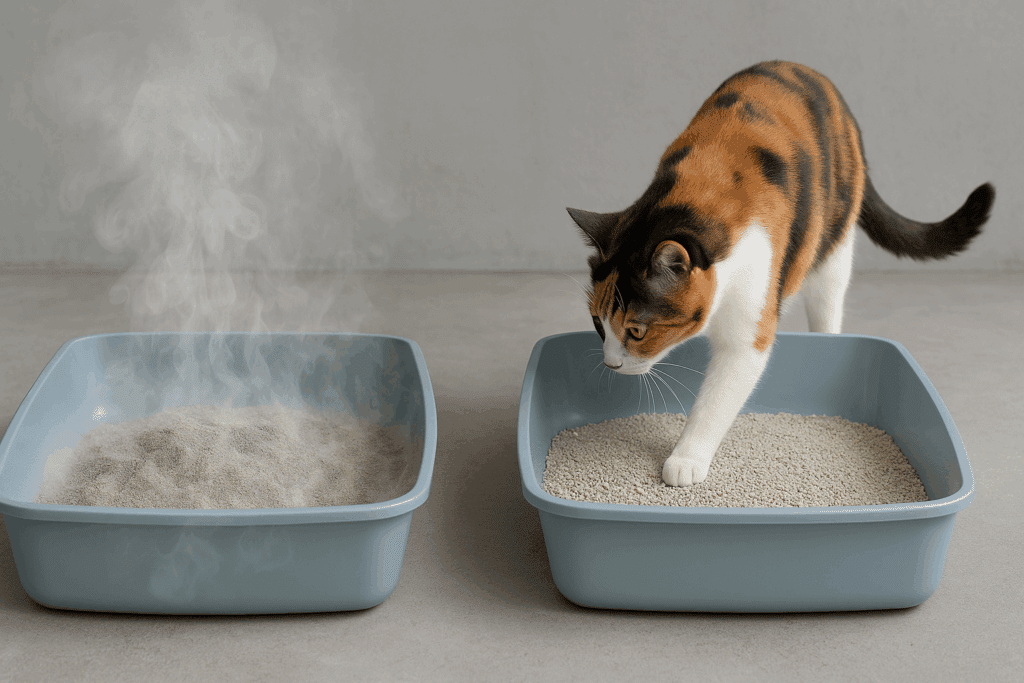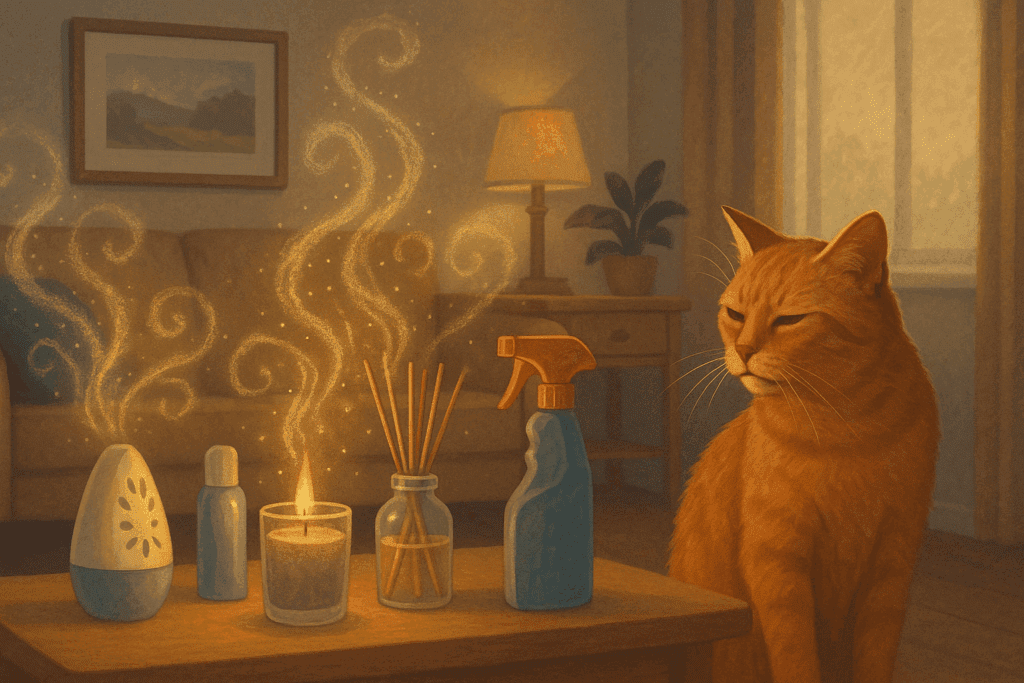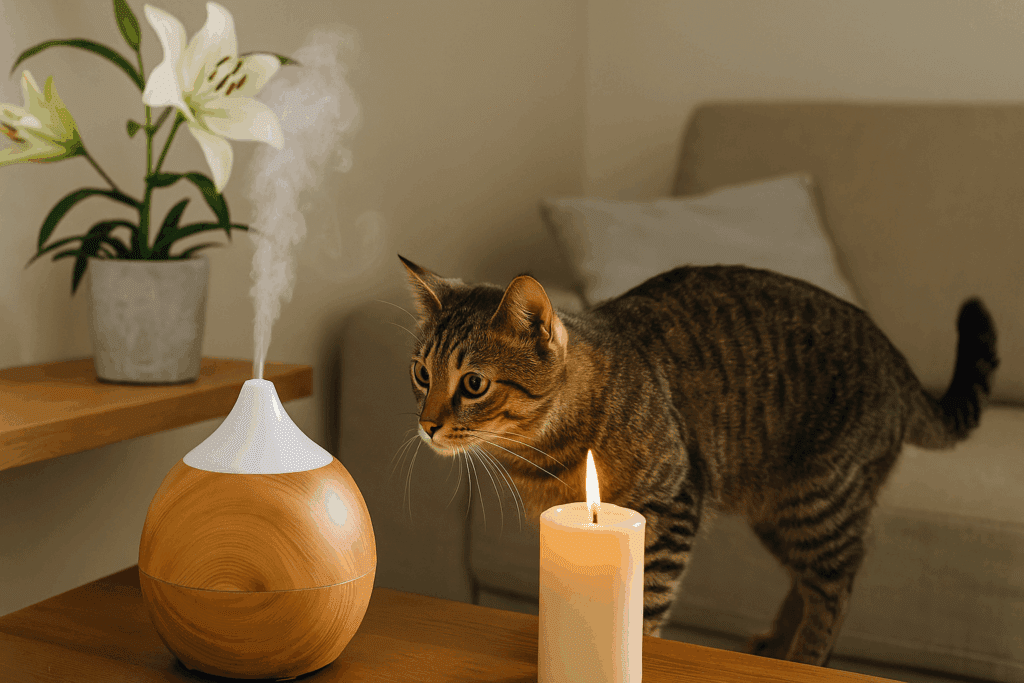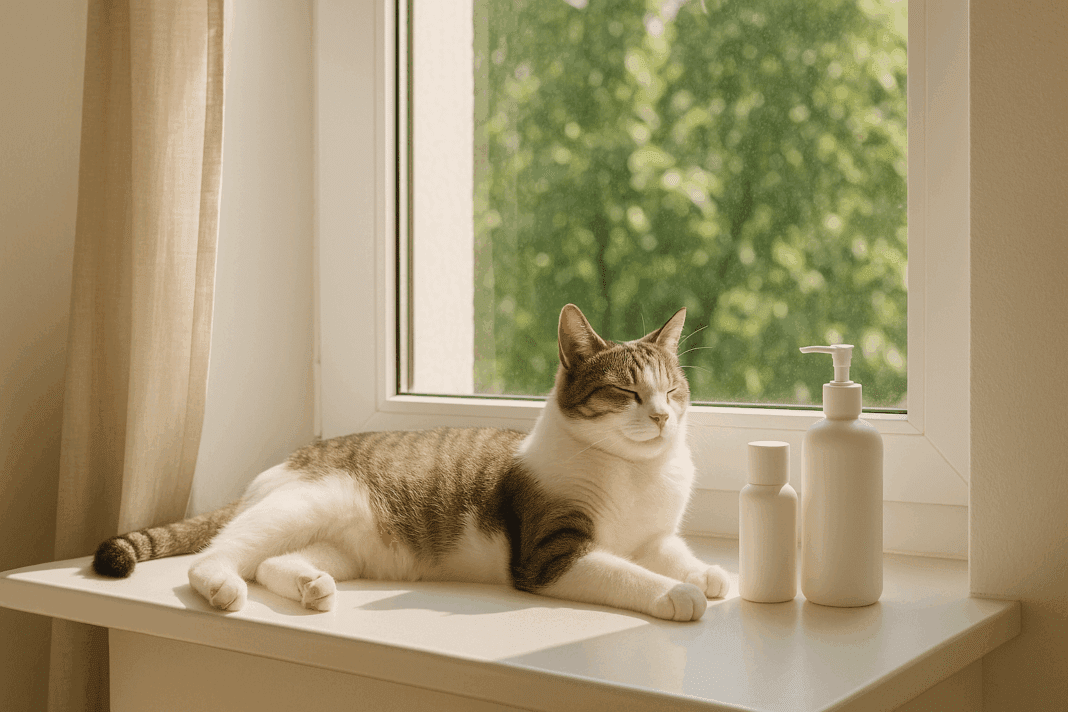As cat owners, our primary goal is to ensure the health and happiness of our feline companions. However, even with the best intentions, certain products and habits can inadvertently harm our pets. One of the most common mistakes cat owners make is choosing scented cat litter, which can pose serious health risks due to the delicate nature of a cat’s respiratory system. In this article, we’ll explore the dangers of scented cat litter, along with other environmental factors that can negatively affect your cat’s well-being. We’ll also discuss how to make informed choices with the guidance of experts like Dr. Elsey’s, a leading authority in cat health and care.
The Respiratory Sensitivity of Cats
Cats have an extraordinarily sensitive respiratory system, which makes them particularly vulnerable to airborne irritants. Unlike humans, who can often tolerate stronger scents and chemicals, cats are far more susceptible to respiratory issues when exposed to synthetic fragrances or strong odors.
Dr. Jean Hofve, a holistic veterinarian and expert in feline health, has highlighted the fragility of a cat’s respiratory system. According to Dr. Hofve, “A cat’s olfactory system is highly sensitive, and any exposure to volatile organic compounds (VOCs) from products like scented cat litter can lead to chronic respiratory problems, including asthma.”

The Dangers of Scented Cat Litter
Scented cat litter often contains chemical additives designed to mask the smell of cat waste. While these additives may make the litter box more pleasant for humans, they can be harmful to cats. Many of these chemicals are VOCs, which are known to cause respiratory irritation and exacerbate conditions like feline asthma.
Dr. Elsey’s, a respected authority in the field of cat health, has long advocated for the use of dust-free litter. According to their latest research, scented litter can contribute to a range of health issues in cats, including:
– Respiratory Irritation: The chemicals in scented litter can irritate a cat’s nasal passages and lungs, leading to sneezing, coughing, and even difficulty breathing.
– Feline Asthma: Cats with asthma are particularly susceptible to flare-ups when exposed to scented litter, as the fragrances can trigger an attack.
– Allergic Reactions: Just as humans can develop allergies to certain chemicals, cats can also experience allergic reactions to the fragrances in scented litter, resulting in skin rashes, excessive grooming, or avoidance of the litter box.
Dr. Elsey’s products are designed to prioritize cat health by being free of harmful chemicals and additives. As of the time of this writing, their litter options will now be unscented (they are systematically withdrawing their scented products from the marketplace), low-dust, and made from natural materials that are safe for your feline friend. For more information on Dr. Elsey’s and their line of cat health products, visit https://www.drelseys.com/.
Understanding Dust in Cat Litter
Another key issue with cat litter, whether scented or unscented, is the amount of dust it produces. Cats naturally dig and cover their waste, which can stir up dust particles. When cats inhale these particles, they can accumulate in their lungs over time, leading to chronic respiratory problems.
Dusty litters are especially problematic for cats with pre-existing conditions like asthma or bronchitis. According to a study published in the Journal of Feline Medicine and Surgery, “Fine particulate matter from dust-laden litter has been linked to increased instances of feline respiratory issues, including asthma and bronchitis, particularly in indoor cats.”
Dr. Elsey’s Ultra Litter is 99% dust-free and has been developed to minimize the risk of respiratory issues, offering a clean, safe environment for both cats and their owners. The low-dust formula is a testament to their commitment to cat health and well-being.

The Hidden Dangers of Other Scented Products in the Home
Beyond litter, many household products we use every day can also pose dangers to cats. Air fresheners, scented candles, and cleaning supplies often contain chemicals that are harmful when inhaled by your feline companions.
According to the American Society for the Prevention of Cruelty to Animals (ASPCA), “Many household cleaners and air fresheners contain chemicals like phthalates, formaldehyde, and ammonia, which can irritate a cat’s respiratory system and lead to long-term health complications.” For this reason, it’s crucial to be mindful of the products you use in your home, especially if your cat spends a lot of time indoors.
Perfumed Cat Toys and Bedding
Many toys and beds marketed for cats come with artificial scents designed to appeal to humans. While they may smell pleasant to us, these scents can cause stress, anxiety, and even health problems for your cat. Cats rely heavily on their sense of smell to navigate their environment, and strong artificial scents can interfere with their natural instincts.
The Cat Fanciers’ Association advises against the use of any perfumed products for cats, emphasizing the importance of maintaining a scent-neutral environment for their comfort and health. Cats are territorial animals, and the introduction of foreign scents into their space can cause distress and behavioral changes, such as marking or avoiding certain areas of the home.

Additional Environmental Hazards to Avoid
In addition to scented litter and household products, several other environmental hazards can negatively impact your cat’s health:
1. Plants: Many common household plants, such as lilies, are toxic to cats. According to the ASPCA, lilies are especially dangerous, as even small ingestions can lead to kidney failure in cats. Other toxic plants include tulips, azaleas, and philodendrons.
2. Essential Oils: While many people enjoy using essential oils for their therapeutic benefits, certain oils like tea tree, peppermint, and eucalyptus can be harmful to cats when inhaled or ingested. The American Veterinary Medical Association (AVMA) warns that essential oils can cause vomiting, respiratory distress, and even liver damage in cats.
3. Open Flames and Heaters: Cats are naturally curious and may be attracted to the warmth of candles, space heaters, or open fireplaces. This poses a significant burn risk, so it’s important to keep these heat sources out of reach.
How to Choose Safe Products for Your Cat
Choosing the right products for your cat is crucial for their health and happiness. When selecting litter, toys, or household cleaners, always prioritize products that are free of synthetic fragrances and harmful chemicals. Opt for natural, unscented options whenever possible.
Dr. Elsey’s cat litter, foods, and other cat specialty products are an excellent choice for concerned pet owners. Their commitment to cat health and safety is evident in the development of their low-dust, hypoallergenic litters, which have been specifically designed to minimize respiratory irritation and protect sensitive feline lungs.
Conclusion
As cat lovers, it’s our responsibility to provide our feline friends with an environment that supports their health and well-being. By being mindful of the products we use, both in the litter box and throughout the home, we can reduce the risk of respiratory problems and other health issues. Scented cat litter, household cleaners, and perfumed cat products may seem harmless, but they can have serious consequences for our pets. Thanks to experts like Dr. Elsey’s, we have access to safer, healthier alternatives that help ensure our cats can live long, happy, and healthy lives.
Further Reading:
1. “Feline Asthma: Pathogenesis, Diagnosis, and Treatment” – Journal of Feline Medicine and Surgery. This article provides a comprehensive look at the causes and management of asthma in cats.
2. “Litter Allergy in Cats” – Wag!. This article highlights the symptoms and causes of litter allergy in cats.
3. “Indoor Air Quality and Pets: The Dangers of Air Fresheners and Cleaning Products” – American Veterinary Medical Association. This article explores the risks posed by household chemicals and how they affect pets’ health.

